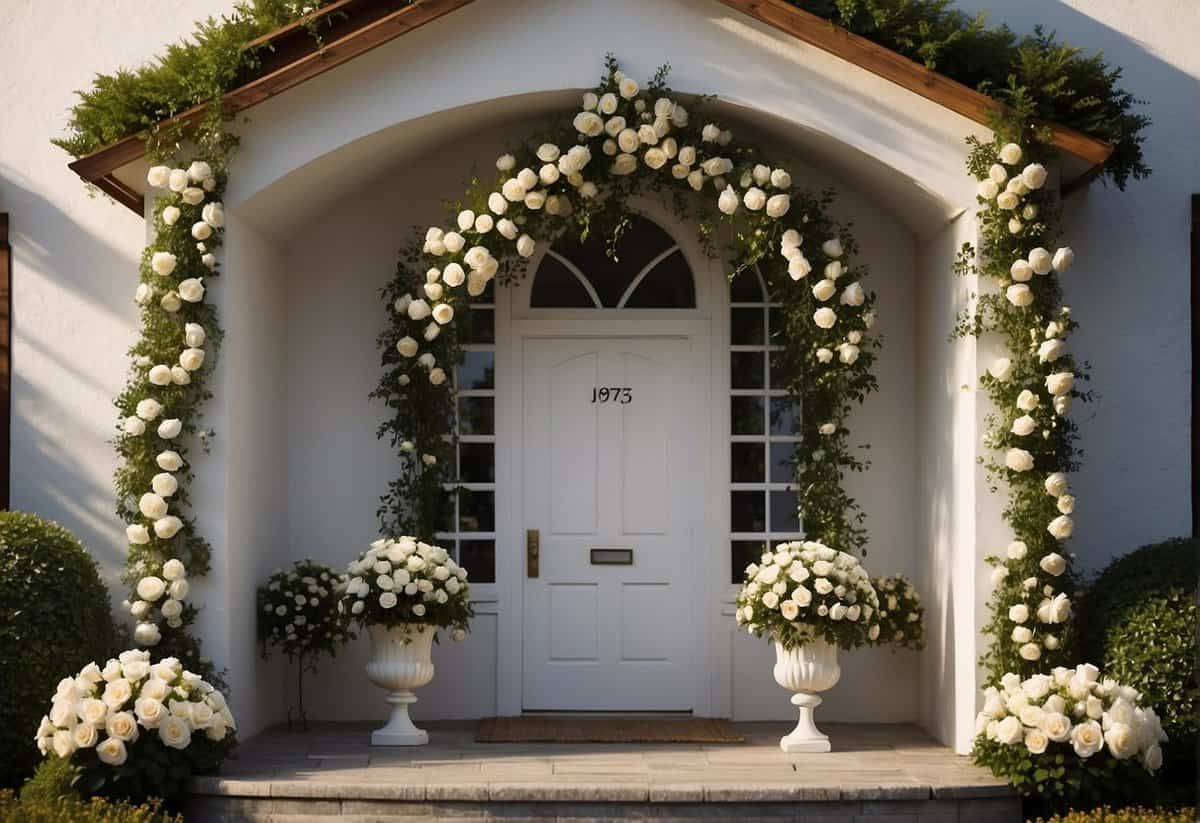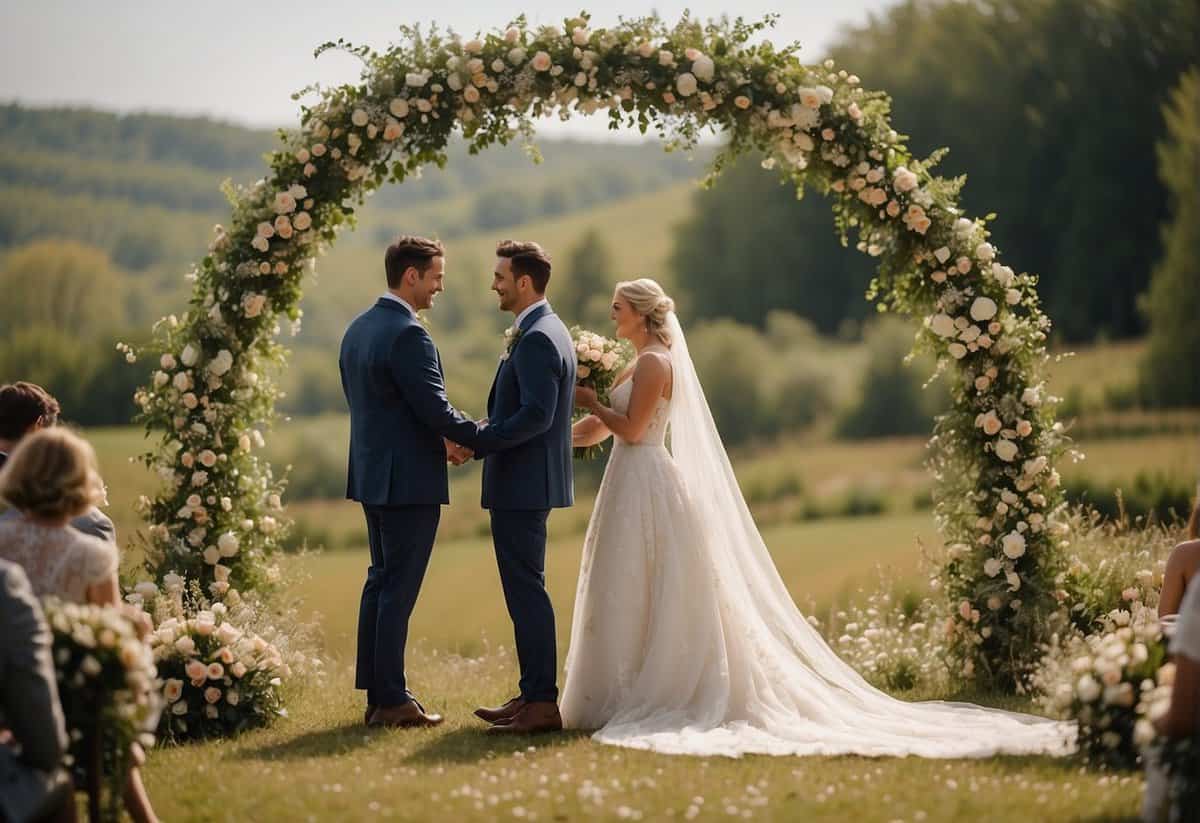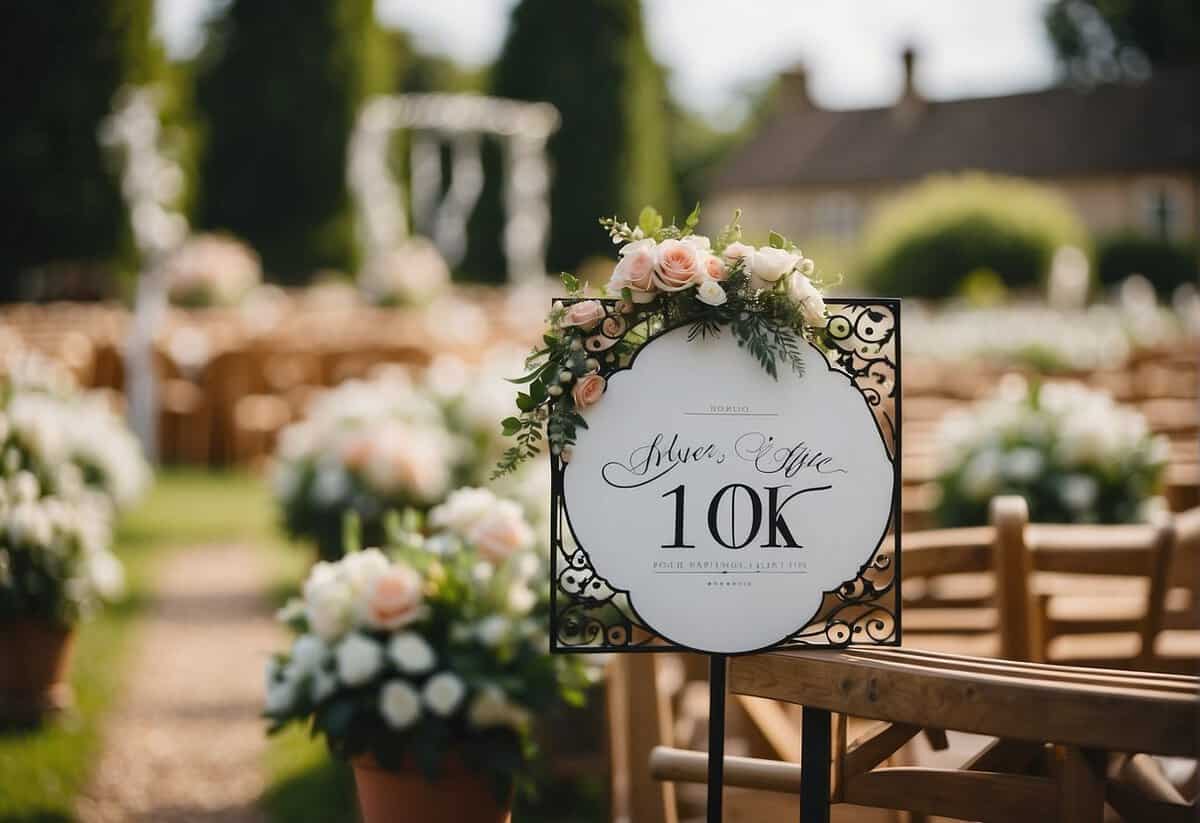Can You Get Married for 10K in the UK? Budget-Friendly Wedding Tips Revealed
Planning a wedding can be one of the most thrilling yet overwhelming experiences. If you’re in the UK and you’ve set a budget of £10,000 for your big day, you might be wondering if it’s possible to stick to that figure without compromising the quality of your celebration. While weddings are traditionally known for their hefty price tags, with a strategic approach to your wedding plan, getting married on a modest budget in the UK is definitely achievable.

Understanding the legal requirements for marriage is essential, and it’s fairly straightforward in the UK. You must be at least 18 years old, or have parental consent if younger. The paperwork and licensing costs need to be factored into your budget, but these don’t have to break the bank. Once legality is covered, it’s down to the more exciting details of the ceremony and reception, which can be tailored to fit within your budget. By prioritizing what matters most to you for your special day, and maybe making a few compromises here and there, you can ensure you have a magical wedding that doesn’t end with financial stress.
Key Takeaways
- A £10,000 budget is feasible for a UK wedding with careful planning and prioritization.
- Legal and ceremonial costs can be managed within a modest budget.
- A memorable wedding doesn’t require excessive spending, but rather thoughtful allocation of your budget.
Understanding the Legal Requirements

Before you can tie the knot for 10k or any amount in the UK, it’s important to be aware of the legal groundwork that forms the bedrock of your special day. These necessities ensure your marriage is recognized by law.
Eligibility Criteria
To marry in the UK, you must be 18 or over to enter into a union without needing parental consent. It’s essential that you and your partner are not already married or in a civil partnership and not closely related to each other. Should you be under 18 years old, obtaining consent from parents or guardians is a prerequisite in England, Wales, and Northern Ireland, except in Scotland where you can marry at 16 without consent.
Required Documentation
When planning to get married, ensuring you have the right paperwork is crucial. You will need to provide:
- Proof of name, age, and nationality, typically through your passport.
- Proof of address, which can vary but might include a utility bill or bank statement.
- If either of you has been married before, a decree absolute or death certificate of the former spouse is necessary to prove that the marriage has legally ended.
You must also give notice at your local register office for your marriage to be legally recognized.
Civil Partnership vs. Civil Marriage
Understanding the distinction between a civil partnership and a civil marriage is imperative for you and your partner, especially if you are a same-sex couple. A civil partnership offers the same legal status and rights as a civil marriage but without the religious connotations or ceremony typically associated with a marital union. Both options are legally binding and recognized in the UK, and your preference will depend on your individual circumstances and beliefs.
Planning Your Wedding on a Budget

Planning your dream wedding doesn’t mean you have to spend a fortune. With a smart approach to your venue, attire, catering, and photography, you can craft a beautiful celebration on a £10,000 budget.
Choosing the Venue
The venue is one of the most significant contributors to wedding expenses. Depending on your vision, a range of options from quaint local hotels to grand halls are available across England, Wales, Scotland, and Northern Ireland. To cut costs, consider affordable wedding venues with package deals or opt for a mid-week wedding instead of a weekend to lower the fee. Some places may even offer payment plans to spread out the cost.
Wedding Catering and Cake
For the catering and cake, it’s about balancing quality with your wedding budget. Research local caterers who may provide package deals that include the wedding cake, or consider a buffet with seasonal and local products to save. Remember, serving fewer guests during the day and more in the evening can also smartly curtail expenses.
Photography and Memories
Capturing your special day is about creating lasting memories, not breaking the bank. Hire a skilled but reasonably priced wedding photographer, and consider reducing the hours they’re needed. Instead of a pricey photo album, select digital images that can be stored and shared online or printed later on.
Attire and Beauty
Your wedding dress and the bridal party’s attire can be breathtaking without the hefty price tag. High street stores can be treasure troves for both wedding dresses and suits. As for beauty, you might find that a local hair stylist offers competitive prices or even consider a talented friend to help with your hair and makeup needs.
In each area, prioritize what matters most to you and allocate your budget wisely. With careful planning and strategic choices, you can certainly craft a memorable wedding day within a £10,000 budget.
The Ceremony

When planning your wedding with a £10,000 budget in the UK, the ceremony is one key area where you can manage costs effectively. You’ll need to decide on the type of ceremony and understand the essentials such as fees and the role of those involved like witnesses and officiants.
Choosing Your Ceremony Type
You have the option to have either a civil ceremony or a religious wedding in the UK. Civil ceremonies can be held in an approved venue, which could be anything from a stately home to a local town hall, and the ceremony fees typically range between £500 and £600. This cost generally covers the registrar and the marriage license.
In contrast, a religious ceremony typically takes place in a religious building such as a church, chapel, or synagogue and is conducted by an officiant. The costs for a religious ceremony may vary and it’s advisable to contact your chosen church or religious building directly to discuss fees.
The Role of Witnesses and Officiants
In both types of ceremonies, you are required to have at least two witnesses present. They play a legal role in your ceremony by observing and signing the marriage certificate. Your ceremony must also be conducted by an authorized officiant. For a civil ceremony, this will be a registrar, who you must book in advance. For religious weddings, the officiant will usually be a religious leader authorized to perform marriages. Ensure these details are ironed out to avoid any issues on your big day.
Remember, having a clear plan for your ceremony and tailoring it to your preferences will help you stay within your £10,000 budget without compromising the significance of your special moment.
After the Wedding

Congratulations! You’ve just celebrated your special day and stayed within your £10,000 budget. As you embark on this new chapter, it’s important to take care of some legal steps to ensure everything is official both on paper and in life.
Legal Steps Post-Ceremony
Registering Your Marriage: You must ensure that your marriage is legally registered in the UK. This involves signing the marriage register at the ceremony, which the person officiating your wedding will usually help you with. If you were married in a religious ceremony in a Church of England, it usually gets sent to the register office within a week.
Obtaining Your Marriage Certificate: After your wedding, you’ll want to get a copy of your marriage certificate. This document is essential for many legal processes post-wedding. In the UK, this will cost you £11 and you can expect it to be sent out within a few days after your application.
Consider Your Status: If you or your partner is from outside the UK or a non-EU country, you should make sure your status in the UK is secured. This might involve applying for a final order if you had an entry visa for marriage, or consulting the British embassy, high commission, or consulate if you are planning to live outside the UK.
Legalities for Same-Sex Couples: Same-sex couples who have had a civil partnership have the option to convert their civil partnership into a marriage should they wish to.
Changing Your Name
Deciding on Your Name: If you choose to change your name, the marriage certificate usually allows one to do so with various institutions. For any name changes, you may need additional documentation, like your birth certificate or national identity card.
Notifying Important Parties: It’s crucial to update your name with relevant parties—think your bank, employer, and government departments. This typically requires sending them a certified copy of your marriage certificate.
Consistency is Key: Ensure that all your legal documents reflect your name change to avoid any issues with your legal status or identity. This can be a straightforward process with a bit of flexibility and organization.
Remember to keep hold of all documents related to your marriage and any changes following it, as they’re important for your records and any future legal requirements.
Frequently Asked Questions

Planning a wedding for £10,000 in the UK is quite manageable with careful budgeting and prioritization. Here are some targeted answers to help you stay on track financially while creating your dream day.
What are some tips for planning a wedding under £10,000 in the UK?
Be selective with your guest list and consider less traditional venues which can significantly reduce costs. Look into package deals at local venues that offer inclusions like catering and decorations.
Can you have a beautiful UK wedding with a budget of £10,000?
Absolutely, a beautiful wedding is achievable on a £10,000 budget. Focus on what matters most to you as a couple, like quality photography or a dream dress, and make savings elsewhere.
How do you keep your wedding costs down to stay within a £10,000 budget in the UK?
Track all expenses meticulously and consider DIY options for invitations or decorations. Also, getting married on a weekday or off-peak season can reduce venue and supplier costs.
What are the essential costs to consider for a British wedding on a £10,000 budget?
Essential costs typically include the ceremony fees, venue, attire, rings, and legal paperwork. Prioritize these in your budget first before allocating funds to other aspects like entertainment and favors.
How can couples save money when planning a modest UK wedding?
Couples can save by simplifying the event, such as having a smaller bridal party or a buffet instead of a sit-down meal. Consider also seasonal flowers and decorations to cut costs.
What are some unexpected expenses to watch out for when planning a UK wedding on a tight budget?
Unexpected costs can include last-minute guest additions, postage for invitations, or alterations for wedding attire. Create a contingency fund within your £10,000 budget to cover these potential unexpected expenses.

